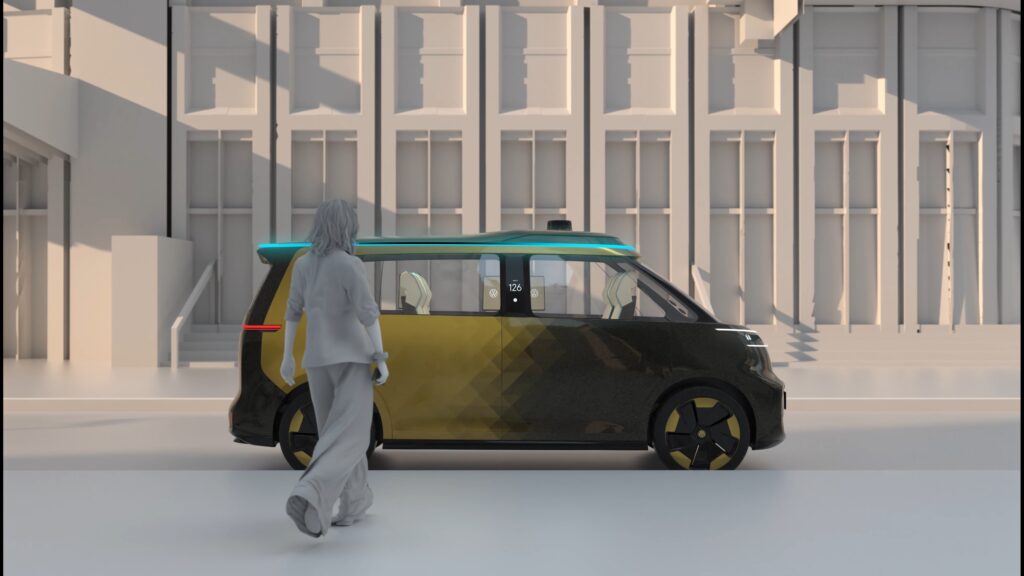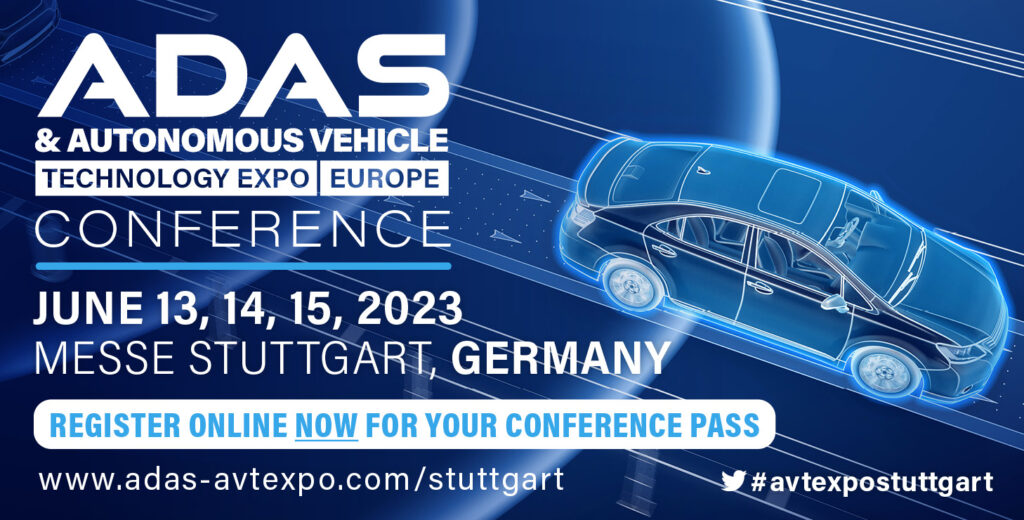 Dr Andreas Richter, engineering program manager of operational design domains, provides an exclusive insight into Volkswagen Commercial Vehicles’ approach to ODD definition, and its importance in achieving safe autonomous operation, ahead of his presentation at this year’s ADAS & Autonomous Vehicle Technology Expo, which takes place in Stuttgart, Germany on June 13, 14 and 15. The event features a conference (rates apply), where Andreas will present ‘Operational design domain between the poles of development, approval and operations’.
Dr Andreas Richter, engineering program manager of operational design domains, provides an exclusive insight into Volkswagen Commercial Vehicles’ approach to ODD definition, and its importance in achieving safe autonomous operation, ahead of his presentation at this year’s ADAS & Autonomous Vehicle Technology Expo, which takes place in Stuttgart, Germany on June 13, 14 and 15. The event features a conference (rates apply), where Andreas will present ‘Operational design domain between the poles of development, approval and operations’.
Andreas started his career in 2007 as a computer scientist at the German Aerospace Center, with a focus on geodata processing for driving simulators and test vehicles. Later, he led the corresponding teams and managed various industry and EU research projects while contributing to the development of OpenDRIVE and the Road2Simulation guidelines. From 2018 he worked at Volkswagen Group IT on the back-end integration of VW’s electric vehicle platform, moving to his current role in 2021.
ADAS & Autonomous Vehicle International recently caught up with Andreas to hear his thoughts on the current challenges surrounding ODDs.
What is your presentation about?
Automated driving (AD) mobility services are becoming more and more of a reality. Consequently, more stakeholders than just the AD developer will work with the definition of conditions for safe operation, meaning public authorities must understand the definition to give final approval. For that, they need transparent traceability on the conducted tests. Meanwhile, mobility service providers want to know how the system can be applied. They need mapping to their designated service area. The operational design domain (ODD) definition should always tell the same story independently of how it was transformed. I want to emphasize that upcoming standards must and will address these requirements.
How would you summarize some of the issues surrounding the definition of current ODDs?
The concept of the operational design domain is new, so there is no best practice available. Also, all automated driving applications are in the testing phase and are based on prototype approval level with additional security measures to compensate for any missing information. Therefore, it is currently not clear how detailed the definition must be. As a result, it is often the case that the resulting document is only ‘human readable’. But the definition of AD capabilities is just one use case, albeit a very important one. In addition, as input for safety analysis, development, validation and verification, the ODD definition can be used for monitoring AD operations or assessing possible application sites prior to real-world tests. Currently, the variety of stakeholders and their differing levels of information requirements are often not considered precisely enough.
How might this situation be best improved – for both machines and humans?
A solution that can be interpreted by both human and machine without translating or transforming is preferable. Any transformation of the ODD definition could cause information loss, which could mean that an approval body’s understanding of the AD capabilities could be different from what the developers have implemented. Misinterpretation and misunderstanding must be avoided and therefore a common definition should be applied. The challenge is to be technically precise in the definition while ensuring that
the definition is still understandable by people from related domains.
What role should standards play in improving the understanding of ODDs? Are they ready to play such a role?
Standards should give guidelines to the users so that they can define the ODD in a reasonable way. This guidance can be given with technical focus – for example, by providing a technical description format – but also content-related by providing requirements and recommendations. Regulations will specify boundaries about what must be addressed in the definition. The standards should be flexible enough to model diverse approaches to meet regulatory requirements. At the end, the different approaches can be interpreted in the same way if they followed the standard. In the best case, regulation and standards can benefit from each other: regulation can be guided from a technical perspective from the standardization side while the standard incorporates the requirements from the regulatory side.
Currently, standards in the domain of ODD are still in development and most of them are focusing more on the taxonomy (collection of terms used in the ODD) but not on how the ODD should be defined in a comprehensive way. Due to the lack of best practice, standardization approaches must evolve based on the gained experience of the involved stakeholders.
What is the key message you would like to convey to visitors to this year’s show?
Standards are important for new approaches, especially when stakeholders with different perspectives are involved or will be involved later. The ODD as a core description of AD systems will be processed by different stakeholders such as manufacturers, mobility service providers, public and approval authorities, and others. Beyond my presentation, Volkswagen Commercial Vehicles is also offering a workshop in Stuttgart [see Exclusive ODD workshop, below] to show in a hands-on session what the challenges are and how we can solve them. We want to raise awareness that the ODD is not merely a simple sheet of paper with a few statements, but rather an important piece of the AD development and operation and should be defined with an open mind to try to address the needs of the relevant stakeholders.
Don’t miss Andreas’s presentation on Day 1, Tuesday, June 13, at the ADAS & Autonomous Vehicle Technology Expo Europe conference (rates apply) – see the website for the full conference program and booking form.
Exclusive ODD workshop
Delegates at this year’s ADAS & Autonomous Vehicle Technology Expo Conference in Stuttgart can book a place at an exclusive lunchtime workshop presented by Volkswagen Commercial Vehicles, providing hands-on operational design domain (ODD) specification and evaluation advice. Taking place from 1pm to 2pm on Tuesday, June 13, the workshop – led by Andreas and a supporting team of experts from AVL, dSpace, Fraunhofer and Robert Bosch – will advise attendees on how to specify the ODD in a machine-readable and human-interpretable fashion. Delegates will learn how to apply state-of-the-art methods compliant with ISO 34503 and consistent with ASAM OpenODD, and how to modularize the specification to enable a single joint specification to be assembled from components provided by numerous teams and experts. By the end of the workshop, attendees will understand which use cases and data are required to support ODD evaluation, including discussion of the various technologies and data sources involved, and how to quantify coverage and determine the impact of specific capabilities on that coverage via ODD comparison methods.
All delegates are welcome to attend and listen to the workshop content, but only 48 participants can join in with the practical exercise, with spaces allocated on a first-come first-served basis, booked via the delegate registration form.



